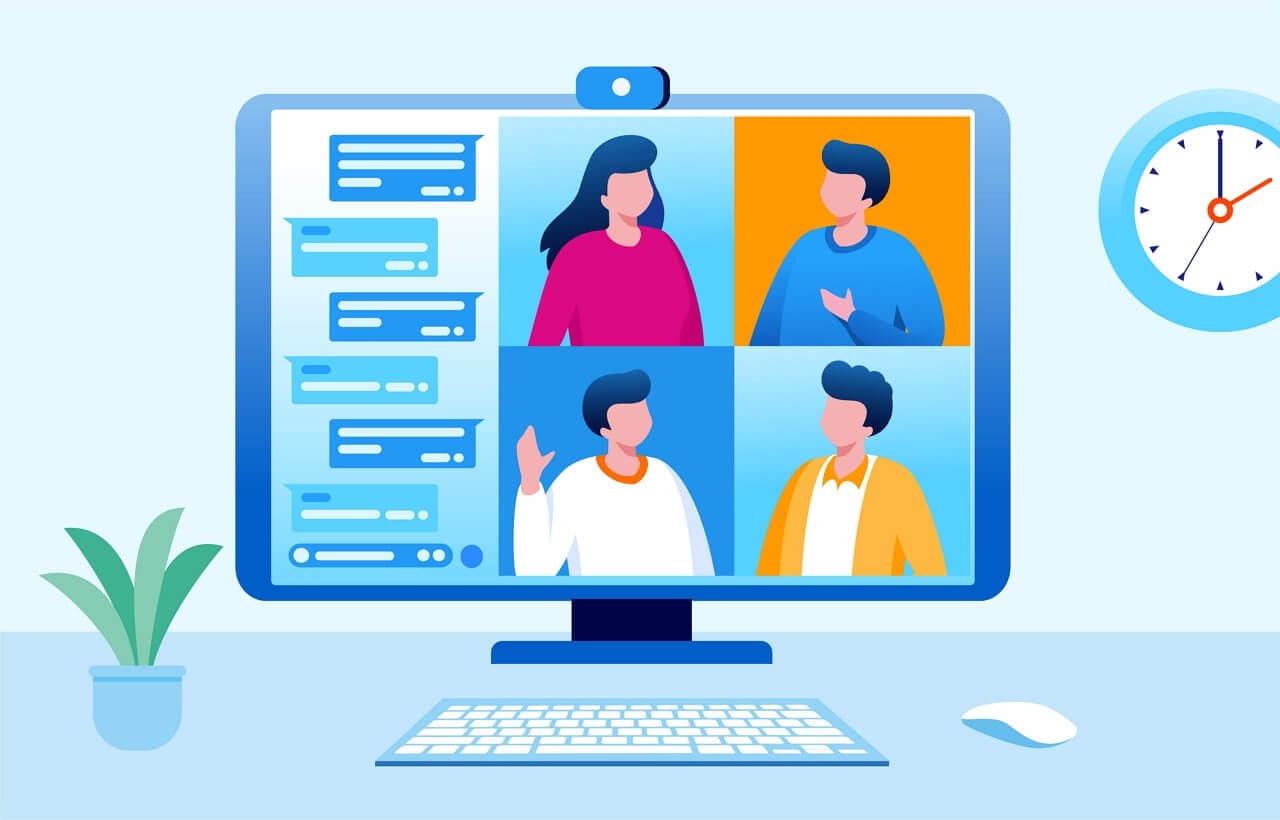The future of jobs in the sale of electronic services
Welcome to dawafer - Dawafer the future of jobs, where we explore how you can take advantage of the rapid transformations in the market to prosper in the Twenty-First Century by selling electronic services.
We are continuing to make our way through a period of unprecedented change, it is said that the world will be transformed in the next twenty years more than it has been in the last 200 years.
While it is undeniable that the effects of COVID-19 have completely changed the world we knew before, we should also not forget that adjustments in the world of employment and the sale of electronic services were in full swing before the pandemic; COVID has simply served to accelerate these workplace developments.
What is the future of jobs in the sale of electronic services?
When we think about the future of jobs in the sale of electronic services, it is not uncommon for most people to focus on such a dominant concern as artificial intelligence.
- Will the robot take over our work?
- Will we have to retrain in a new industry?
- How will artificial intelligence affect our work in the future?
These are all understandable fears, but the fact is that cognitive technologies are only one aspect of the major transformation underway.
In fact, there are multiple converging trends that are radically changing the world of work, and these changes will have implications for individuals, companies and society alike, in the not too distant future.
New technologies are only one part of the five main trends that are re-developing what the future of jobs in the sale of electronic services will look like; we also need to consider new behaviors and attitudes towards the workplace, the impact of the workforce, and the move towards a work culture.
The forces of change that drive this evolution in the workplace affect the three main elements of any business:
Operation: what business can be organized digitally How will the job itself change in line with robotics, knowledge and artificial intelligence technologies
Workforce: with new talent platforms and the move towards a work culture, who will do the work How companies can benefit from an ongoing source of full-time talent
Workplace: with new combinations of collaborative, team, and digital reality technologies, how are workplaces reshaping the need for physical desks
What the future of jobs in the sale of electronic services will look like?
Any massive change generates feelings of anxiety and uncertainty, we need to think not only about overt developments, but the impact on the emotional and psychological level that must be taken into account.
There are complex questions that we need to worry about, especially ethical issues related to human-machine cooperation.
But this is not the first time that the cultural idea of the work has been completely fixed:
The pre-industrial workforce was synonymous with craftsmanship, full product production, and the overall responsibility of the Craftsman.
The industrial revolution led to the fragmentation of repeatable tasks, the specialization of roles, and fast and cheap manufacturing processes.
Now, as we develop into a cognitive revolution, the concept of work is being redefined, we are moving away from "work" and "completing tasks" towards solving problems, managing human relationships and facilitating human-machine cooperation.
In order for these changes to take root as smoothly as possible, we need to embrace the idea of change. We need to see technology as a way to increase the workforce, not replace it. In fact, the World Economic Forum predicts that while one million jobs may be lost, another 1.75 million jobs will be gained especially in the functions of selling electronic services.
How can a business develop and prepare for the future of work?
The jobs of the future will always include more technological prowess. As machines take over the repetitive and milder tasks, human skills such as problem solving, communication, interpretation, design and evaluation of data will be overvalued.
To make this possible, we need to change the way we perceive "work". We must go back to basics, develop, hone the skills of the workforce to take on new roles and tasks, embrace alternative, diverse and different skill sets and prepare for less "traditional" methods of interaction.
Redefining the world of jobs
Within this center of innovative essays, we will explore the new era of work through the lens of fundamental issues. The essays will serve as a starting point for employees, entrepreneurs and seasoned business owners alike. You will find a source of inspiration and guidance through the current economic development and employment.
Within these inspiring articles, we will encourage you to look for voids in this world, approach your work or role in creative ways and harness your creativity to find variables. Once you avoid those boundaries, you can open up to new insights and possibilities.
Topics on this hub for inspiring thought leadership essays include:
The workforce after COVID. How to adapt to the lessons of the pandemic, protect the future of your business through the buzzword "resilience" and New Generation Z trends emerging from the ashes of the pandemic.
Industries of the future and the sale of electronic services, revolutionizing the understanding of "business" in line with the new industries that are developing. This includes a look at nanotechnology, the creative economy, longevity research, sustainability, biotechnology, quantum computing, artificial intelligence, and more.
Remote work and demolition of office space. A look at how moving away from the traditional work style will change our physical and psychological outlook on the world of work.
Upgrading skills, adaptation and evolution. We will consider the necessary adjustments that all companies need to take into account. How to innovatively and confidently navigate both technological and human adaptations, as well as the need to develop and hone soft skills.
Gen-Z Work Habits. A look at Gen-Z including Gen-Z's new work habits, the impact of Gen-Z entering the workforce, and the move towards a Gig economy
When it comes to the future of the workforce, no one can predict for sure how it will look or predict which new industries will appear or what new skills will be in great demand.
What we do know is that the future of the workplace will be radically different from what it is today and the pace of change will be faster than anyone expects.
Perhaps the redesign of the way we understand "work" was delayed, perhaps the COVID-19 pandemic forced our hands to reevaluate, reevaluate and reboot more quickly than intended.
Reassignment invites all employers, employees, and entrepreneurs to embrace the future of work with purpose and teamwork, and these articles will guide you through the process of building a happier, healthier, more resilient, and fairer future.






